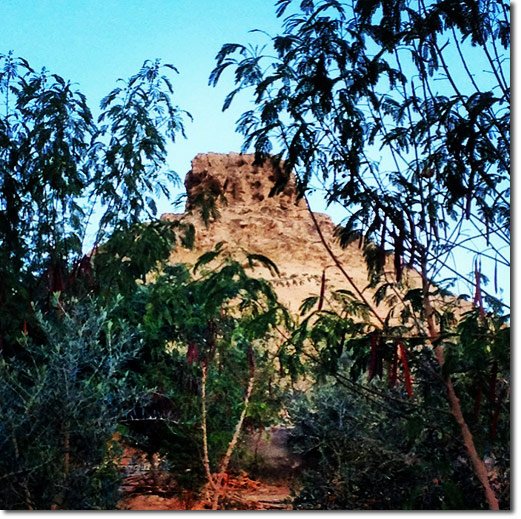
Our one month long internship at the Greening the Desert Project (the ‘Sequel site’) just ended. Ten students arriving from seven different countries were part of the first internship to take place at the project site in the Dead Sea Valley in Jordan. This will be a journey through pictures on what Geoff, Nadia, the interns and the WWOOFers were up to.
Michelle, Sarah, Gaina, Asma’ and Jack the enthusiastic gardeners, Nikola, Abdulrahman, Mark, Christian and Rhea our natural builders and passionate earth workers spent a month on different projects.
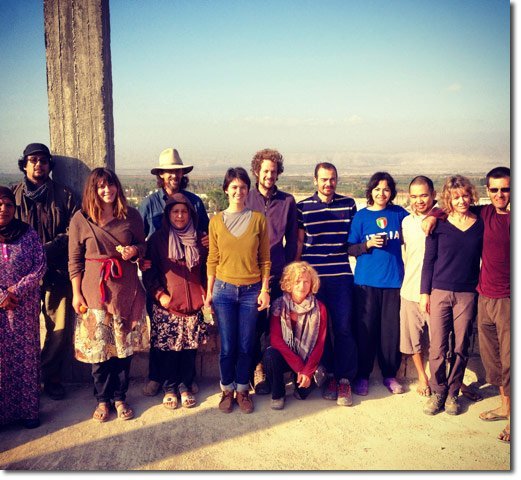
The Group
Since the project is still in its establishing phase, the core of the internship was designing, planning, building and installing a variety of systems, including constructing a new chicken house with earth bags and straw bales, recycling bulk containers into wicking beds, and maintenance of the irrigation system. Installing the solar system and bio intensive gardening in the project and in the nearby school were also part of the plan, along with smaller projects such compost, compost tea making and biofertilizer as well as constructing a new banana circle, digging miniature swales and maintenance to the reed bed system.
Operating the rocket stove and nursery work was part of the daily schedule. Projects were running in parallel with all the enthusiasm and energy that was in the air, with students taking the initiative to start and finish projects.
The Dead Sea Valley is 31° North of the equator and 400m below sea level. Considering that with every 100m we go down below sea level it mimics going 1° closer to the equator, it means the area is considered to be subtropical in terms of temperature, but drylands in terms of precipitation.
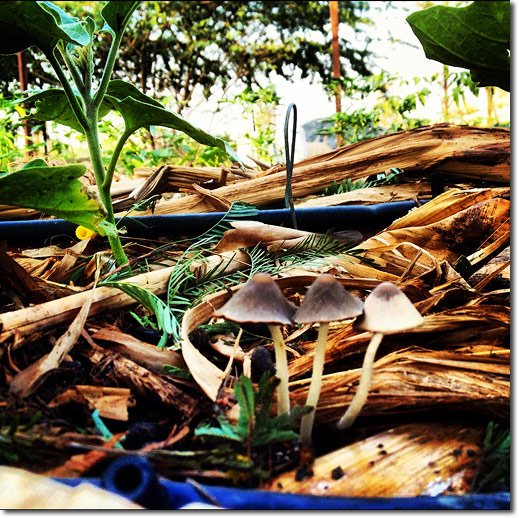
Fungi – the effect of good mulching in an arid climate!
With less than 50 millimetres (2 in) mean annual rainfall and a summer average temperature between 32 and 39°C (90 and 102°F), an irrigation system that is easily operated with optimum functionality is vital to the success of the trees and the vegetable gardens. This was the first project the students started with.
Trees on the farm include date palms, olives, fruit and citrus trees, acacias, carobs, and countless varieties of overstory and leguminous trees. Since the municipality supplies water once a week, and to ensure water security throughout the week, extra tanks were needed to store this water supply. A generous donation by Bill Mollison and Geoff Lawton’s last PDC students allowed us to install an extra six tanks. That would be enough to cover us over the week.
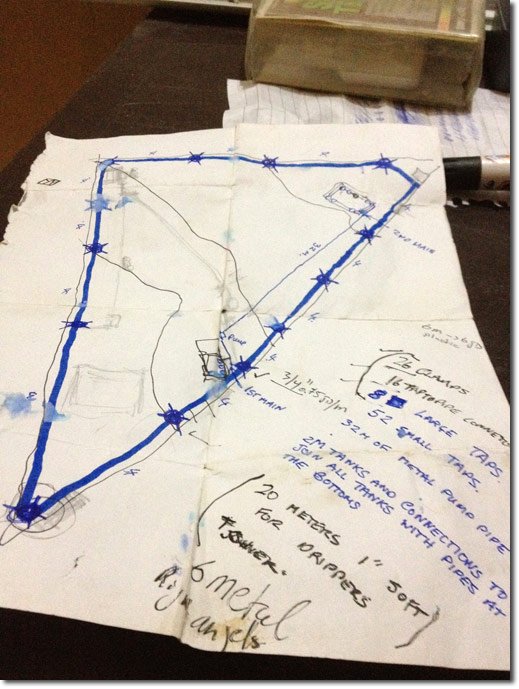
The Irrigation Plan!
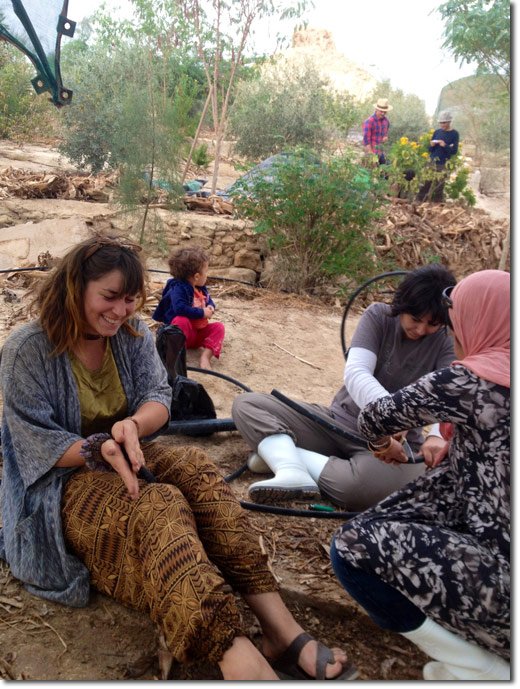
Nadia, Michelle, Asma’ and Latifa fitting the pipes
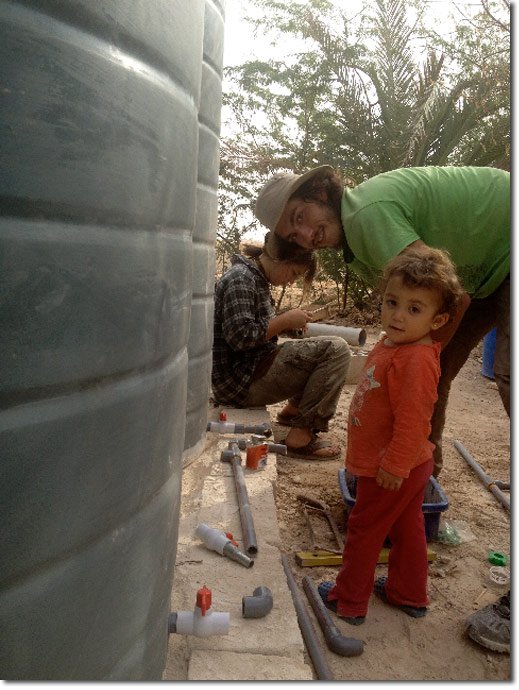
Our Plumbers
A new chicken house was designed, with a fenced gravity run, were chicken can scratch downhill whatever we place at the top, this means by the time straw placed at the top reaches the downhill side of the house its mixed properly with manure and probably also partially composted. Students built and cobbed a straw bale and earth bag roosting pen for the chooks.
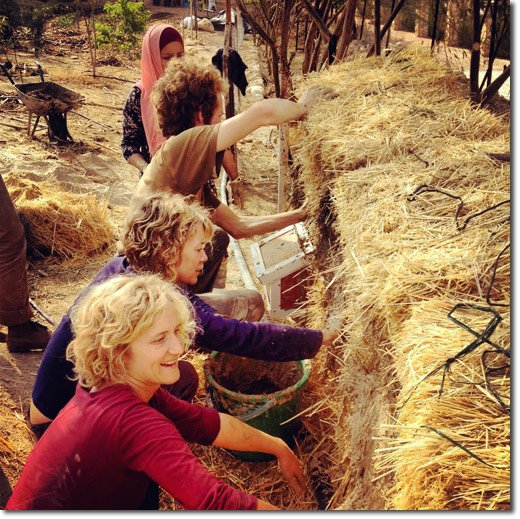
Cobbing lesson with Nadia
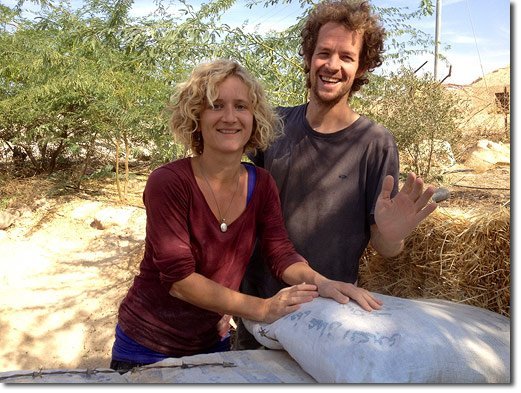
Rhea and Christian on earth bag duty
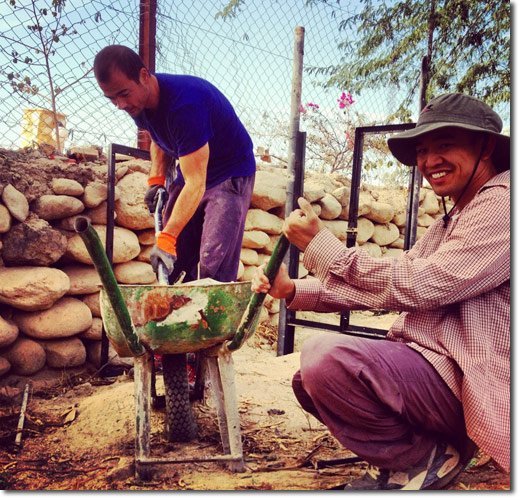
Mark and Nikola on top of their jobs mixing cement
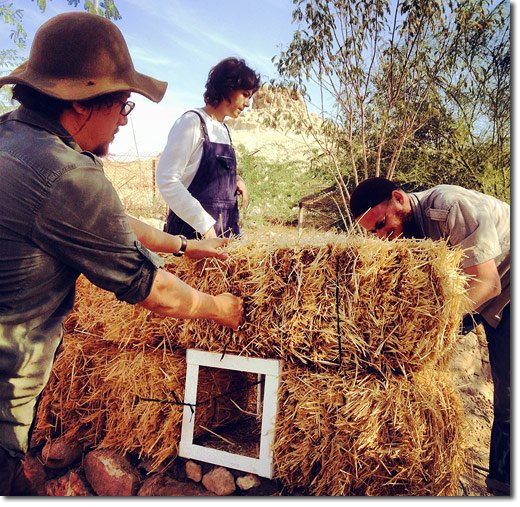
Asma’, Tashi and Abdulrahman with the straw bale building blocks
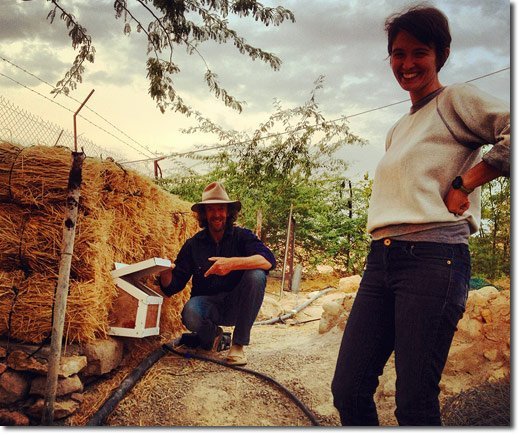
Sarah and Geoff happy with the roosting box
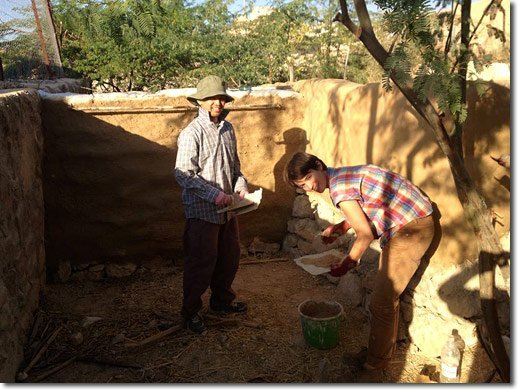
Sarah and Mark almost done cobbing
With round the year sunny skies, potential for solar energy is high in the valley. During the internship the students engaged in installing the solar photovoltaic cells, along with a battery bank, that would give the project the option of going off grid. With the use of a switch, access to the grid is also optional as needed.
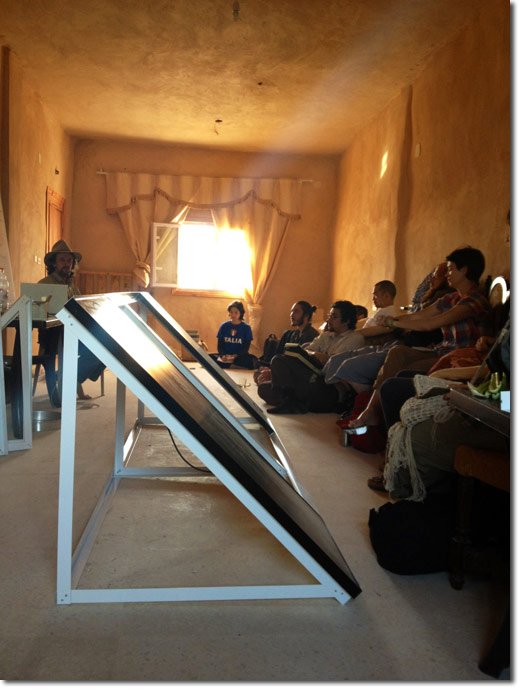
Solar Lesson
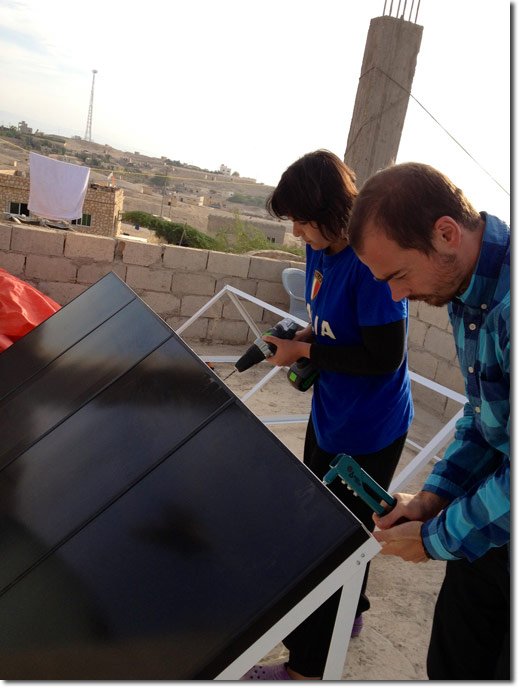
Drilling and riveting all the frames
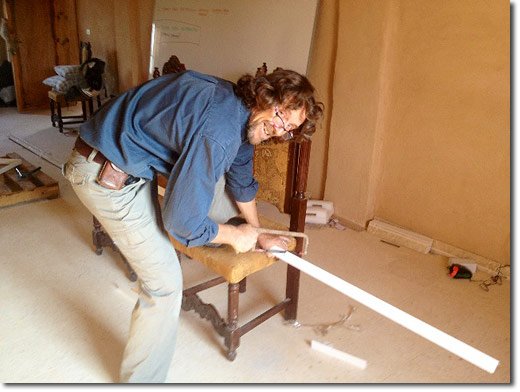
Geoff in workshop mode
Work in the gardens was divided into two parts, establishing new systems and the maintenance of existing systems. Students engaged in building vegetable garden beds according to the bio-intensive method. Recycling bulk containers (IBCs) into wicking beds was another nice experiment for the students due to its high efficiency in small scale gardens especially in arid climates.
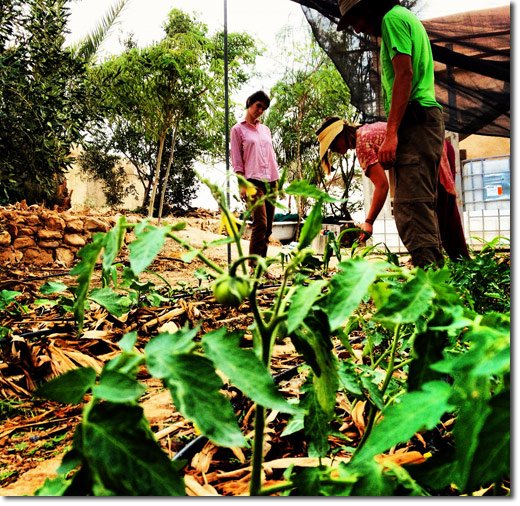
Sarah, Michelle, Oscar and our first baby tomatoes
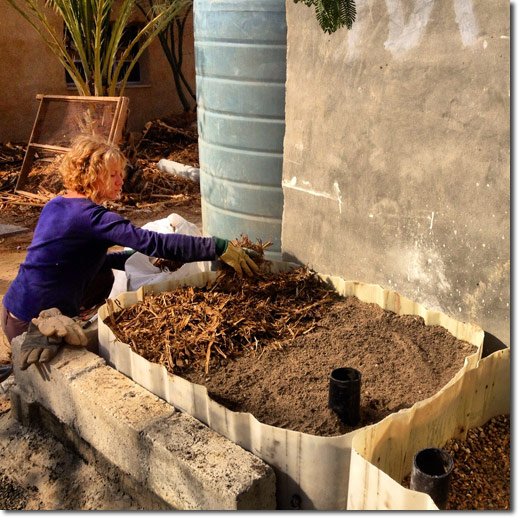
Gaina and the wicking bed
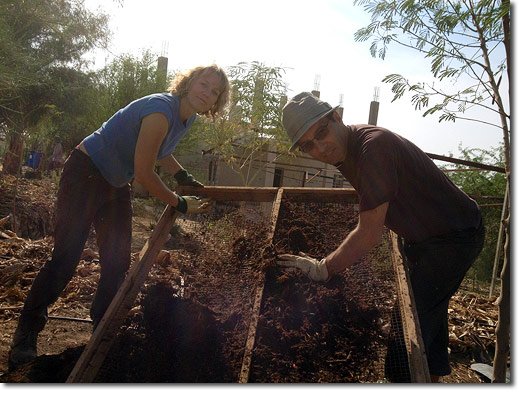
Jack and Gaina sifting compost
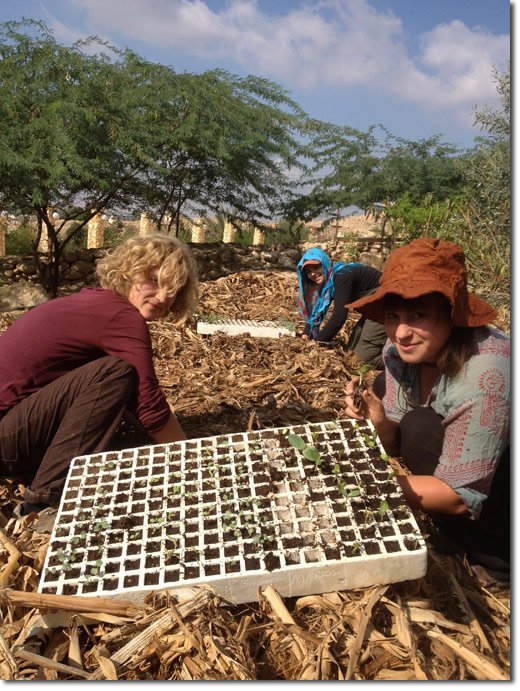
Seedling Time
PRI Jordan along with Kids are Sweet International established a vegetable garden and food forest in the nearby Jawaseri Girls School. Maintenance of the sunken vegetable beds in the school was done by the interns. Also compost, compost tea and bio fertilizer making was demonstrated.
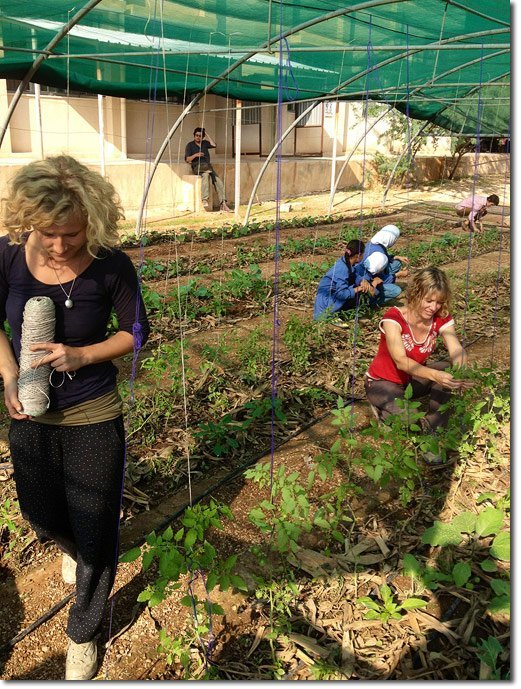
In the school garden
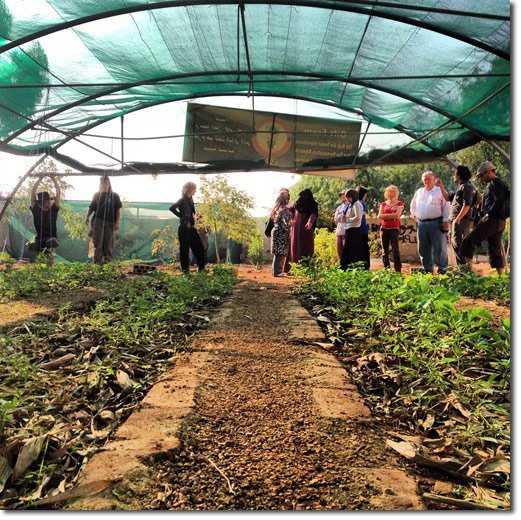
During the visit to the school garden
A number of field visits were organized, where the interns had the chance to see a well-established food forest in the Jordan Valley, with a range of fruits were growing including tropical papaya, citrus trees and stone fruits. Also, a visit to the Husn refugee camp was organized in cooperation with the United Nations Relief and Works Agency for Palestine Refugees in the Near East, UNRWA, to give the students the chance of designing and recommending applications of permaculture in an urban setup.
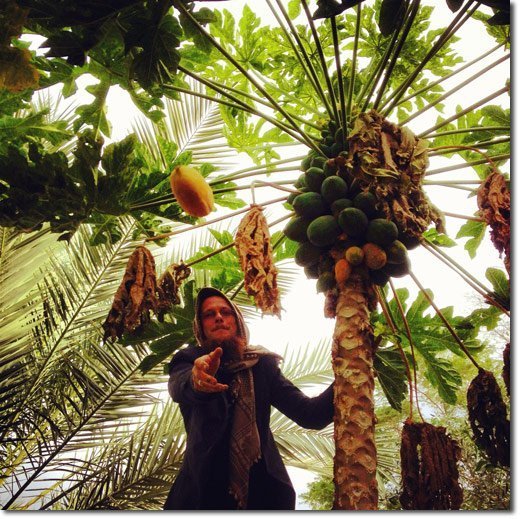
Papaya
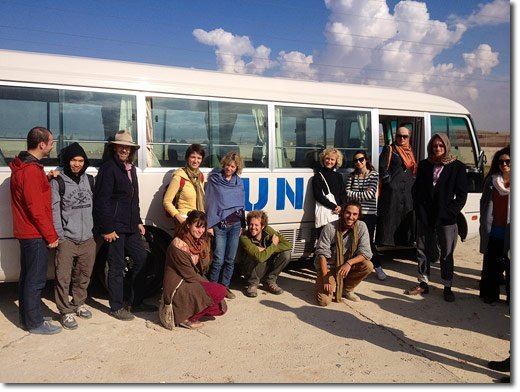
During the visit to the Husn refugee camp
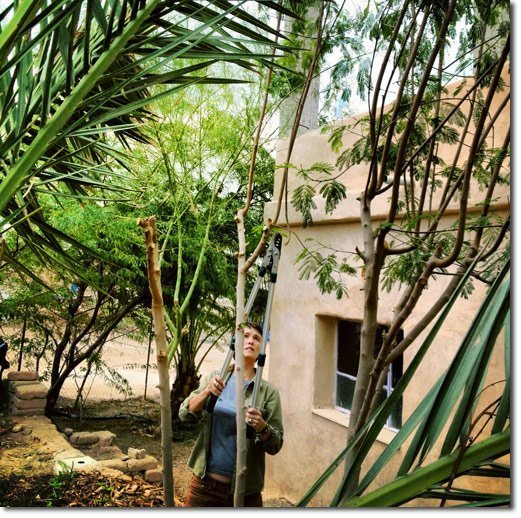
Chop and drop time

Building time
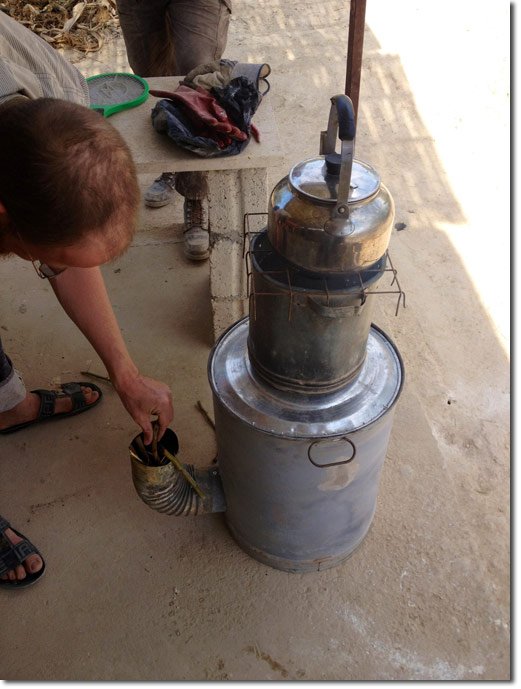
Abdulrahman and the Rocket Stove
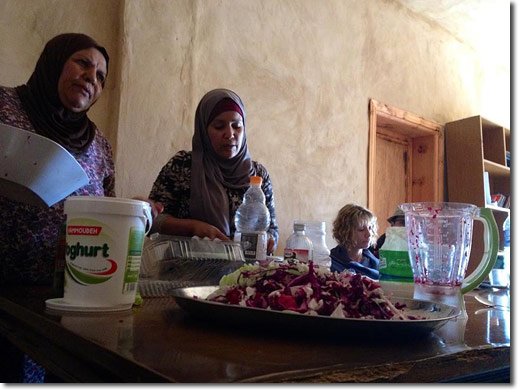
Fermentation lesson with Nadia and Grandma
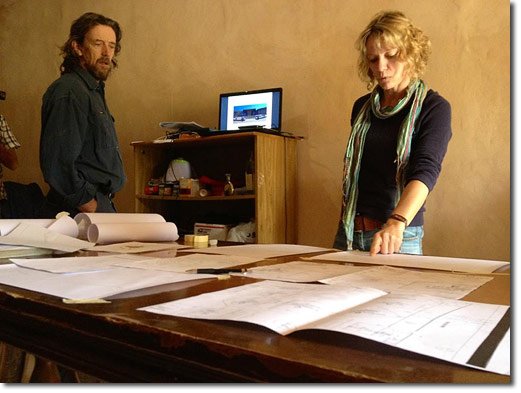
Design Session
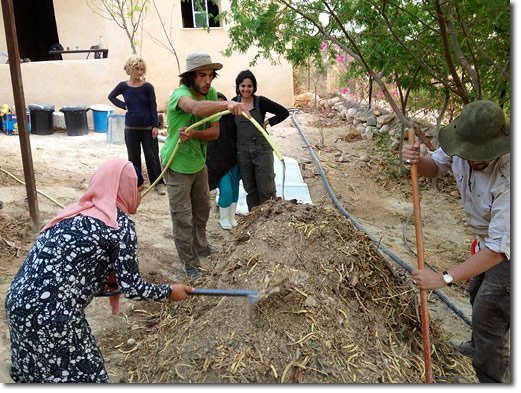
Compost making with Nadia
With the internship ending, the project is looking greener than ever. We’re hoping for more and more such vibrant internships where interns can experience a project in the establishment phase in an arid landscape at the lowest point on earth.
P.S. At time of writing, the next Dead Sea Valley Permaculture Project (aka Greening the Desert – the Sequel) Internship in Jordan is with Rhamis Kent, beginning April 2013 and the one after that begins October 19, 2013, with Geoff and Nadia Lawton. Both of these internships are preceded by a Permaculture Design Certificate (PDC) course. See our course listings for dates and details.
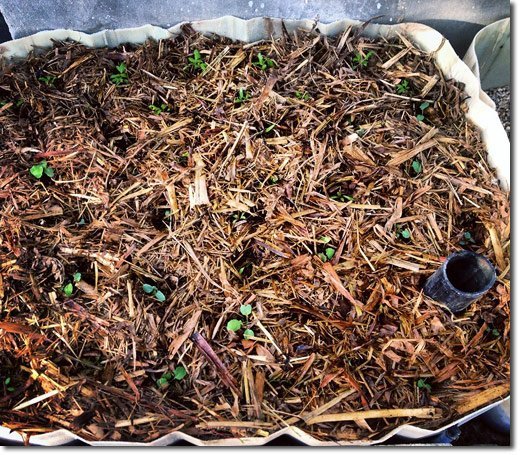
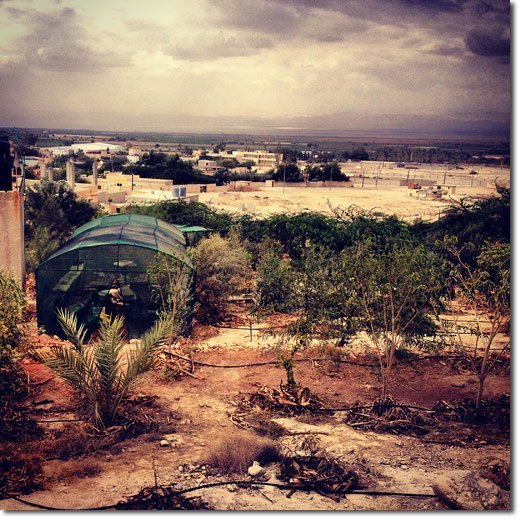
Further Reading:

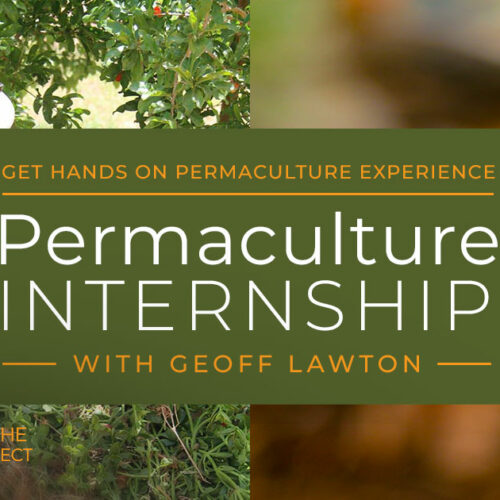
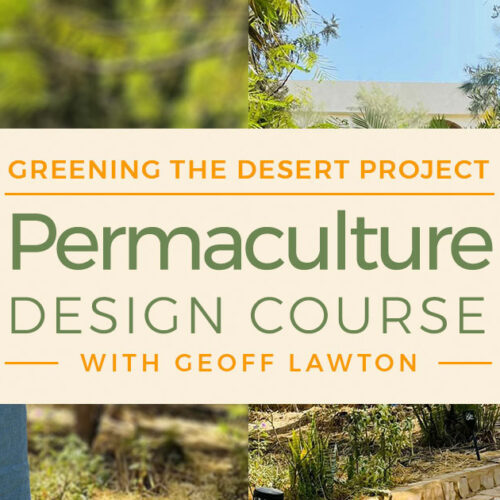
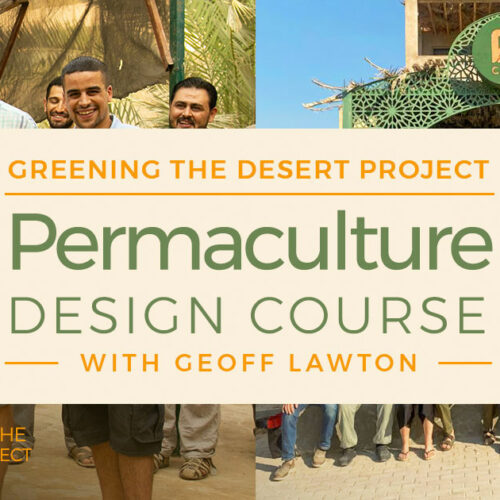
I m so jalous.being here far from the permaculture sites .geat job and dead see valley land is so thankfull
I have been to Jordan with Geoff and Nadia, it can be done there, then it can be done anywhere.
It takes less time to plant a tree than it takes to watch a DVD; green the desert and green our cities, back to Eden and ‘food for free’.
If half the people on the planet planted a single tree a month that means food forests at a rate of nearly 50 BILLION plants a year. ‘If not us then who? if not now, then when?
Welcome to 2013 ‘the year of change and transformation’
Regards: paul Taylor
Hello,
My name is Gabriel Runfola and I am a french Ingeneer in Horticulture and Environment. I am very interesting about your project Greening the Desert. I have made a french article about you and your project. look : https://lasocietesolidaireetdurable.com/2012/12/28/reverdir-le-desert-realite-ou-utopie/
Me and several friends would like to meet you to speak about your project but also others project like the cration of Urban Agriculture House in several city in France like Angers or Nantes but also Paris to developp the agriculture and in order to greening cities of France and of the world !
We would like to put your project in Marocco and Algeria.
Thanks for your understanding and listening.
Yours faithfull. Runfola Gabriel
Well said Paul, I’ve been as well and if we can do it there we can do it any where, even the smallest step is a start
so lets get busy!
cheers
Nicely documented Salah.
Gday Runfola there is a few site in Moroc already, myself and recently Geoff Lawton have taught in Moroc
If you want contacts send me a email to david[at]permacultureworks.org and I’ll forward on the contacts I have there
all the best
Hello,
Greening the desert is for me the most inspiring permaculture project ever 🙂
Please let me know if is it possible to came there as a woofer for few months to see the site with my own eyes..
cheers,
Marco